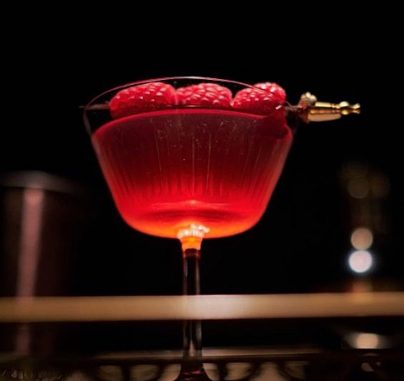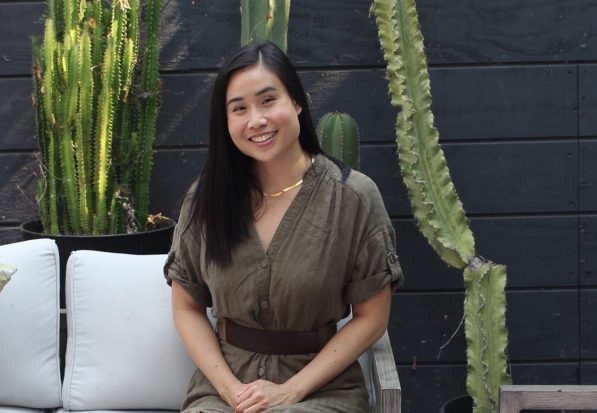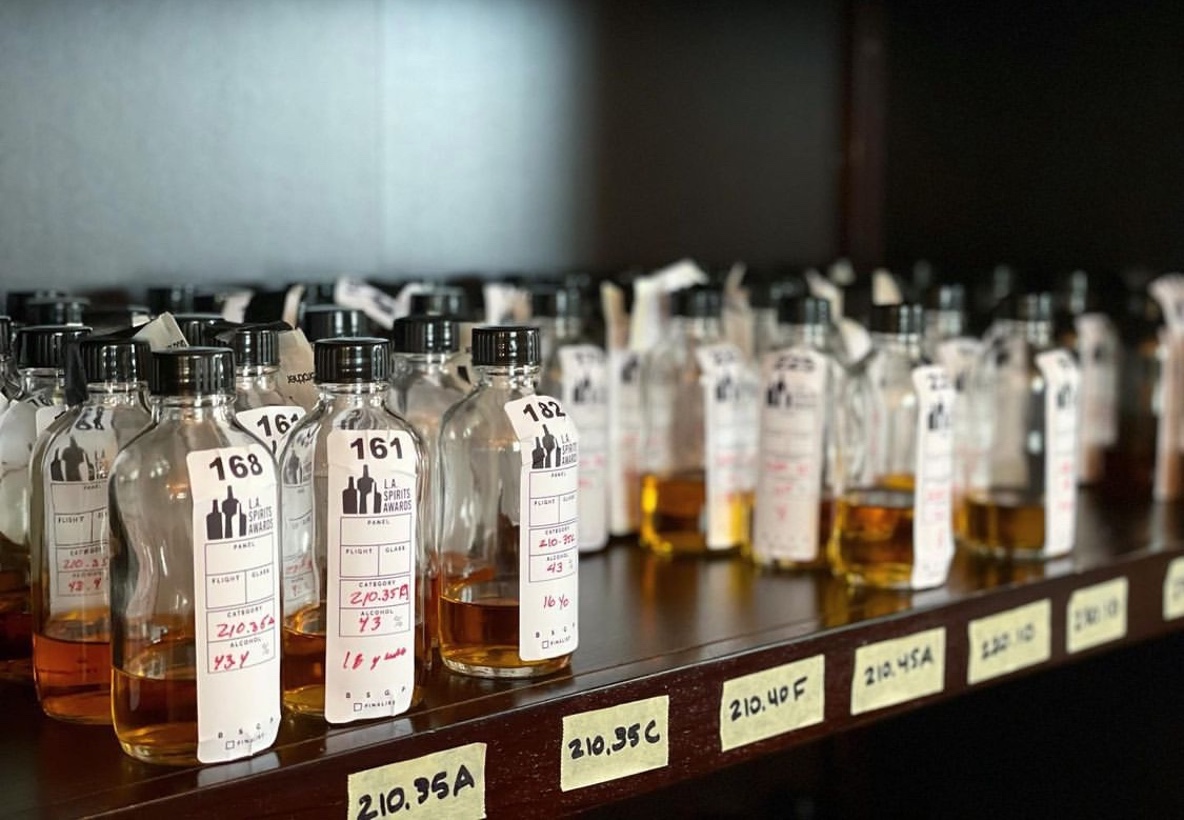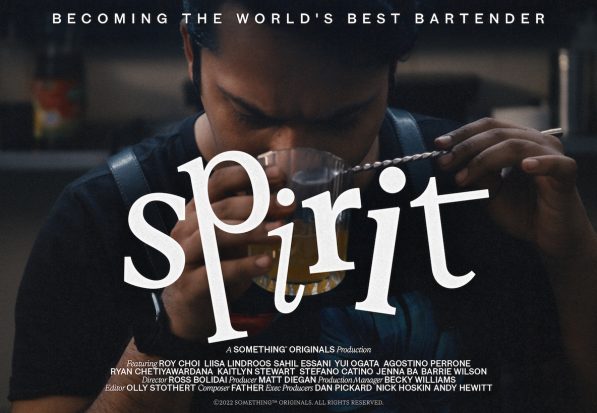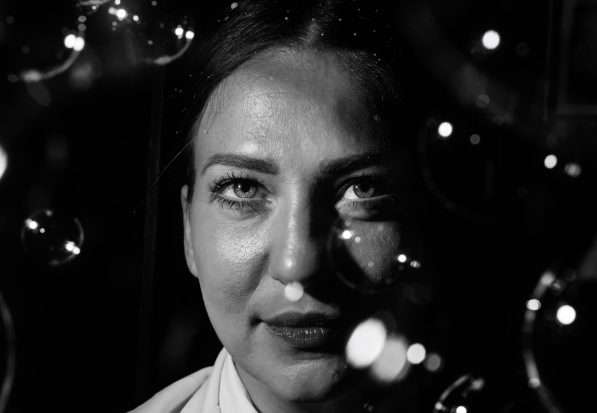We all like to know that the spirits we are drinking are the best out there. So we often turn to the results of spirit competitions as our guide. If the brand we are drinking has won an award, we often feel reassured that we’ve made the right choice or alternatively, we can discover new brands that we may not have seen before.
As the public becomes more influenced by the spirit award results, transparency is becoming much more important. People, not only want to know whose opinions they are taking, but also how the awards are worked out.
One spirit competition, the LA Spirits Awards is looking to make everything more visible from their judging through to their entry process.
To find out more, we talked to LA Spirits Awards Director Nicolette Teo about judging, winning and everything in between.
For more information on LA Spirits awards, got to laspiritsawards.com
Tiff: We all like to know that the spirits we are drinking are the best out there. So we often turn to the results of spirit competitions as our guide. If the brand we are drinking has won an award, we often feel reassured that we've made the right choice or alternatively, we can discover new brands that we may not have seen before.
As the public becomes more influenced by the spirit award results, transparency is becoming much more important. People, not only want to know whose opinions they are taking, but also how the awards are worked out. One spirit competition, the LA Spirits Awards is looking to make everything more visible from their judging through to their entry process.
To find out more, we talked to LA Spirits Awards Director Nicolette Teo about judging, winning and everything in between.
Thank you for joining us. Nicolette.
Nicolette: Of course. Thank you for having me.
Tiff: Now you came from the San Francisco Spirit Awards. What made you think that a new way of doing things was necessary?
Nicolette: San Francisco Spirits Awards Competition have established themselves as one of the most prestigious spirits competition in the world and they really did set the standard for the industry. And I was honoured to be a part of helping them get there. But San Francisco, like many other competitions, is owned and judged by a very homogenous demographic, that being the older white men. And there's nothing against them, but I think my business partner and I felt that it really wasn't reflective of the modern-day spirits, consumers. It wasn't just older white men who are drinking, you've got African-Americans who are enjoying bourbon, women who are enjoying their cocktails with their friends. And so we really felt that they needed to be a spirits competition that better represented this contemporary spirits industry and its audience. And, beyond that, we also wanted, we just felt like we wanted to offer the industries a more youthful and updated competition.
And that, that can come in terms of something like a more modernized entry process, to something as detailed as our brand identity. Design is a really big part of our brand, and we know that a lot of consumers are purchasing with their eyes, so aesthetic and feel matter, and we wanted to design our medallion artwork to reflect that to really strategically catch the eye on the crowded shelf in the store.
So just wanting to offer something fresh and young was what was the impetus to start LA Spirits Awards.
Tiff: Now you talk about maintaining a clear division between church and state. How can that be seen?
Nicolette: So. LA Spirits Awards is owned and managed by myself and my partner, Joel bloom, and neither of us judge or taste the entries in any sort of formal way.
We may behind the scenes take a little sip and enjoy it personally, but our opinions don't matter. And what this means is that our judges are able to just judge and every award that they might give out, these decisions are never influenced or dictated by unintentional biases that might come up when you are interacting with the brand in the entry process. Say for example, an entrant is struggling with an entry form and they're calling you and you maybe didn't have such a great interaction with them, none of that influences the actual giving of medals. By keeping this separation of church and state, we insulate our judges from these unintentional biases, so judges really, they can really judge it blind. I am the firewall between them and the entrant. There's no preconceived notion going in of oh, this bottle was difficult to pour or the packaging didn't look great or whatever. It's just what's in the glass, in as unbiased of an environment as possible.
So yeah, I think it's important because we are all human, we can't help if you're irritated with someone, you might think that their product doesn't taste as good, but the judges don't have to deal with any of that.
Tiff: Now you're also one of the few competitions that signals exactly who the judges are.
Nicolette: Yeah. LA spirits Awards philosophy is a three prong approach. One is spirits competition management, one is strategic marketing, and the other is the judging, you're only as good as your judges are and that's a big component of the reputation of your judges.
And we have all these great judges that really reflect a cross section of the society at large, not just our industry. And we want consumers to know who they are and they want them to identify with the judging panel, because I think previously, a lot of times, you just know it's a metal, you've no clue who gave it. You don't know this person and it feels that there's, it's more removed and we want you to know who these great judges are, what they've done, what they're doing in their lives, where they've come from and it also personalises a little bit.
Tiff: Now it's an impressive list of judges. What difference do you think these judges bring to the competition?
Nicolette: I think for us, a big keyword is diversity, but not just diversity in terms of race or gender or sexual identity or anything like that, but really diversity in terms of their experiences, work and in life. And that matters because it informs how these judges are tasting. We can't completely strip them down to just robots, their experiences will inform how they are reacting to a spirit. And on top of that too, bringing in people with more diverse backgrounds, when there is a spirit that most judges are not super familiar with someone can speak to, it can say, okay, this is the intention behind the spirit category. Things like that really matter to us.
And also, on a more personal note, most if not all of our judges do some form of advocacy work aside from their regular day jobs and we like working with people who want to make a difference in the world. We enjoy our judges and it's a really great atmosphere and that's something we're very proud of.
Tiff: Now, talk to us a little bit about the judging. I believe it's blind tasting.
Nicolette: Yes.
Tiff: Is everyone in the same place at the same time or is it done remotely or how has it worked out?
Nicolette: We wanted to do it all same place, same time, there's this thing that happened to everybody, I called the pandemic.
And so we launched in 2020, right in the middle of everything crazy. And so we have now had two years of doing it remotely, which has worked out better than I think a lot of our judges thought it would. It was a lot of, planning, a lot of details that went into it. Essentially, because it's blind, my staff and I, we spend a lot of time, getting the paperwork, the entry forms, processing all of that, literally warehousing, checking in entries, and then we pour everything behind the scenes.
So hopefully next year we'll do it at a venue where then we'll have a behind the scenes pouring room and the judges will be in their judging room and we'll be able to serve them everything. But for this year we did everything ahead of time, boxed it all up, put everything in flights, labeled everything by glass.
And because it's blind, there's a whole system of saying ' flight one is a flight of wheat vodka in glass and we do give a little bit of information. So our judges aren't guessing what the product is, they know it's a wheat vodka and they know the proof and you know where flavour is applicable or where age and stuff like that, we do tell them it's not a guessing game.
So all of this information is given to the judges, they taste it on a panel of three to four judges and they judge it individually, giving it a medal. And we do have standardised, this is what a bronze medal means, this is what a silver, gold and so on and so forth.
And so they read it individually and then they come together as a group and then they find a group consensus and that's the final medal.
Tiff: Now you say that the spirits don't compete against each other, but instead are judged on their own merits. Can you explain a little bit about what that means?
Nicolette: So when we say it's not judged against each other, so in this example where I was saying this flight of 10 vodkas, you don't go, 'is glass A better than glass B', instead the judge is thinking, okay, this is a flight of wheat vodkas, is the sample in glass a good representation of what that category means, given the contemporary standards and what the industry is looking for. Does this taste like what it says it is, if it's something like, for example, our best liqueur and show was a banana cream pudding, sipping cream does it taste like banana or is it what they say it is.
And so the judges are then judging each individual product on its own merit. And in that sense, there can be multiple gold medal winners. They can be multiple silver medal winners and also, the judges don't have to award something. If the product is flawed and it just is, it's supposed to be vodka, but it tastes like gin. Then that gets a no metal because you are marketing and selling yourself as a vodka. So you should taste like a vodka.
Tiff: I was about to ask, can there be situations where no entry into the category is worthy of a gold.
Yes. Yeah, definitely. I think, especially because we're judging based on who sends us product. So we don't have everything in the world in front of us. Sometimes the entrants that send in there wasn't anything great in the judges think maybe the best was like a bronze medal and then that's what they give that individual product. Again, because it's judged on its own merits, there is not a requirement to give a gold medal.
Tiff: Now you do have a second round though. What's that about
Nicolette: Because it's a group consensus thing, oftentimes that panel of three or four, they might have very differing opinions and they can't come to a consensus. Someone is saying ' no, this is a no medal', and someone's going ' oh my gosh, no, this is like the best thing I've ever tasted'. So we then bring it to the secondary round where we call upon more judges to come in, to then try. It's like a re-taste to resolve judging disputes because it does happen. Doesn't happen super often, but it does happen. So that's one aspect of the secondary round.
The second aspect is that oftentimes in really broad categories, say single malt scotches, there are just so many products that win the platinum metal. So a platinum metal happens when all judges on a panel, give it a gold medal. So that automatically makes it a platinum metal and platinum metals are sent up for best in show rounds, which is our very last round where they do actually compete against each other, where we're looking for the best. Single malt scotch. So oftentimes in larger categories where say, I have 20 single malt scotches that one platinum, and I don't want to send 20 up to the entire judging panel. So we'll have a secondary round to narrow it down. So maybe I'm sending 10 or five or something like that. So it's just a way of narrowing down again for us to meet the entire judging panel that meets in the best in show round.
Tiff: With the best in show, is that worked in each category or is there an overall winner each year for the show as a whole?
Nicolette: So there's not an overall show as a whole because we just find it's too hard to compare, a gin to bourbon, there's very different and. there's preferences. So best in show is awarded to categories and we don't award it to every category because not every category will have a platinum metal.
So it's really about looking for the broader categories. Yes. We always know we're going to have the best bourbon and the best tequila and the best gin, but maybe we might not have the best Cristalino Tequila. We did this year, we didn't last year because it just depends on what's in front of us. And so the best in show around, it's a little more kind of just seeing what got sent forth by our judges in the initial rounds.
Tiff: Now taste is of course, very subjective. How do you get around that?
Nicolette: It is subjective, but we hire the right judges. We make sure that these judges know the right standard. This is what a bourbon should be. Maybe I prefer something that's a little sweeter. I prefer, a sweeter, rye-heavier bourbon or something like that. But understanding that you're looking at the category and the standards for the category, and you're judging based off ' is there a place in the market for this'. You may not want to stock it at your bar. You may not want to sip on it all night long but you could see that someone can enjoy this, and this is a very well-made product. And then beyond that, by putting them on panels, they do get out, they do sit around and they do, give their little tasting notes. They talk about it and come to a group consensus. So that always evens out the extremes of people who really don't enjoy a certain category.
There are certain judges too, who say, I don't love anise flavoured stuff, so we don't have them judge that stuff, cause they say, 'I can't get over my personal bias and so please don't have me judge this category'. So there are ways to get around it. And a lot of it is me making sure I'm managing it right, making sure that the environment the judges are in is the most optimal for unbiased judging. And so my job during the competition is to make sure that, ' if you're feeling a little grumpy, let's take a little break'.
Tiff: Do you think that the spirits competition world is starting to become a little bit crowded?
Nicolette: Great question. I think. Yes, and no. So more and more competitions have started just in the last two years. And in fact, a lot of San Francisco, alumni staff and judges alike, have started their own competitions. But I do think that there's enough space. There are so many new spirits brands coming up, the industry is really booming. And for us specifically, I think we are just focusing on what we're doing. I think that we are one of the only competitions that really have competition management expertise. For a lot of competitions are being started by judges who know that aspect of it, but we bring in this thing where, you know, managing a competition is ... it's like a complicated machine. I always say with a thousand little moving parts and all of these little parts have to move in unison to make it work. And this experience really assures, accuracy and fairness and efficiency and it really starts from before the entries come in and also goes on way after the wards are being shipped out. And that's something we're very proud of.
Tiff: Do you think the competitions that do exist are competing for consumer attention?
Nicolette: Yes. I think as long as there are other competitions out there that will always be the case. The funny thing is that a lot of consumers don't know what goes on in a competition, they just see a medal and they just wholesale you okay, sure. So I think a big challenge for our industry is to really get the consumer to understand the differences between each competition and, that's why we're touting our judges. We want you to know who we are. We want you to know who's telling you that this product is good and so on and so forth.
Tiff: Now in terms of who's entering the competition, is it normally just smaller craft distillers or some of the big boys also throwing their hat into the ring.
Nicolette: I think we really see a mix of that. Like you said, it's always these two types of entrants, the craft distillers who maybe have more of a smaller budget and the limited budget, and then the bigger, more established brands who have a bigger budget and may enter multiple competitions and stuff like that. We see both.
And our goal is to always make sure that whoever enters our competition, that we are really giving you the best bang for your buck. And, we want you to have the best competition experience. And we want to be able to accommodate both is our thing.
Tiff: Especially with smaller brands, do you guys provide feedback and is it ever acted upon?
Nicolette: We do when we don't. So if you're thinking about feedback in terms of a professional 'oh, it was a little hot on the finish' and stuff like that. We don't usually provide that kind of feedback. It's just the mechanics of, thousands of products and getting that feedback, it's just hard.
Our job is to give you a tool to tell your consumers that your product is good or acceptable or spectacular. Not that the finish is wrong or it doesn't taste enough like banana or whatever.
That being said, there are times, we've had entrance who don't like their results and they are unhappy. And so we have processes in place where I can go back and listen to what the judges said and really try and pull out more feedback. Like what the judges liked and didn't like about a product. We do record that it's just not given to everybody unless requested.
To answer is it acted upon? I don't know. I like to think so. But I don't know. I've never had anyone come back and say that they've acted upon on the feedback. But we also like to tell our brands, too, that the medal itself is the feedback. It is our judges' way of telling you've done a really good job, but we see ourselves as more than just a feedback mechanism.
Like we're here to help you with your marketing. It's not just a pat on the back for a job well done. It's also ' now take your metal and use it to get the attention of your customer to build brand loyalty, to boost up yourselves', things like that. So that's a big emphasis for us.
Tiff: Now talk to us about the winner benefits.
Nicolette: We see ourselves as like a tool in the marketing department's toolkit. Like we're not here to be your PR department or your ad agency, but we're here to make your life in marketing your wins as smooth and easily as possible. And so that means things like being able to download high-resolution medallion artwork.
And for us, I was mentioning the best bang for your buck. We don't charge additional fees to use your medallion artwork. A lot of competitions do. And we just feel like 'no, you've won, here is your benefit, take it'. And we make it easy to download that. We make it easy to download social media templates because, I don't know if you find this, but social media is hard, especially if you're a small brand, and like coming up with content.
And so we created social media templates that all you have to do is drop your bottle image in there. It has our branding, which we have again, thoughtfully designed to be eye-catching and useful. And so we want to give our brands the tools to really speak to the modern-day consumer and so it's making everything downloadable and easy and they don't have to call us to get all that stuff.
It's there in their entrant control panel. We are also have a lot of partnerships with strategic brands. Like we have a point of sale partner First In Print, who we love. We love the work that they do. They do bottleneckers and shelf toppers. So we have templates all already designed out. You just pick and choose, you click, and there's a discount for you.
There we have, a beverage industry lawyers and importers because it's a difficult world in the US to manage the three-tier system, all that kind of stuff. We want to be there for our brands. And even if it's just a phone call to bounce ideas off, we've done that too, as well, just talking and listening and getting their feedback has been a thing for us.
And then obviously if the pandemic settles down, we'd like to do events in-person events. I think those are always important. And just another way to get, our winners in front of more consumers and build connections there. And we also have in the works, a lot of content that we're trying to produce, because again, in today's age of social media so much is sold there.
People are content hungry. And we know that. Getting the word out about our brand also gets the word out about our winners as well.
Tiff: Talk to us about the personalised entrance control panel.
Nicolette: So this was something that we just saw spirits competitions running things a little behind the times in terms of technology.
We invested a lot of money in making this entrant control panel modern. You can go on there, you can track the progress of your entry, so you can see your entry form. You can download a receipt, you can see have we received your product and are there any issues, you can contact customer support through there.
And then post-competition, this control panel becomes this resource of where you can download all these things talking about earlier. And on top of that too, from year to year, you can look through your entire history with us, what metals that they win last year or the year before. And they can download their medallion artwork there. And then, there's so much more we can build out and we've got lots of plans that I'm not going to share yet till they're ready and live, but we're very excited about it.
Tiff: What has the reaction of brands been, both to things like the control panel, as well as the marketing efforts that you help them with afterwards?
Nicolette: We've had really great responses from brands. We've got repeat customers and people who are really enjoying the ease of the 24 7 downloads.
They don't have to get a person on the phone. It's all there. That being said, because we launched during the pandemic, it was hard to get the word out about us. We're still young, we're still small. We're very excited about our messaging. We think we were onto something, but our challenge has been getting brands to know about us, because when they do, they respond really well. They like what we're offering. They like the language we're using. They like our judges and they like our messaging. And so we're excited for the future for sure.
Tiff: Are most of your entries US-based or is there an increasing number that are coming to you from overseas?
Nicolette: It's so in terms of US-based like being produced in the US versus a foreign market, it's about a 50 50 split.
As we get the word out there we're hoping more and more will come from people who are trying to get into the US market. An award from any spirits competition can really help open doors for these people looking to enter the US market.
Tiff: All right. Nicoletta, we'll leave it there, but of course, if people want to get more information about LA Spirits Awards, they can go to your website, which is laspiritsawards.com or connect with the competition via your social.
Nicolette: Yes, that's right. LA spirits. Instagram, Facebook, and Twitter.
Tiff: Excellent. All right, thank you so much for your time.
Nicolette: Of course. Thank you.
